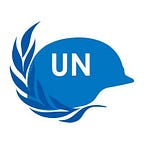Taking over command of the UK’s Long Range Reconnaissance Group in Mali
By Lieutenant Colonel Will Meddings
This week, in the sweltering heat, I took over command of the UK’s newest peacekeeping force. The soldiers of the UK’s Long Range Reconnaissance Group are made up of specialists from across the British Army. They include infantry and reconnaissance soldiers, drone operators, electronic warfare teams and a high-tech surgical team.
It may be a small force but it is a capable one.
Able to patrol for a month at a time and travel hundreds of kilometres from MINUSMA’s base at Gao, it can travel further, through searing temperatures, and put UN peacekeepers into isolated villages.
Some back in the UK will ask ‘why this mission?’, ‘why now?’ and ‘why us?’. These are not unreasonable questions. In 2016 Sir John Chilcot published the Iraq Inquiry, concluding with 10 questions we should ask before the United Kingdom commits itself to boots on the ground. The first question was ‘why do we care?’
To a generation of the British public, and to the generation of soldiers like me who cut their teeth on the dusty streets of Iraq or amongst the mud walls of Afghanistan, UN peacekeeping seems unusual. But the truth is, it represents a return to a role that Britain has carried out before: protecting civilians as part of, and on behalf of, the international community.
As I patrol the villages of Mali I will be wearing the blue beret my father-in-law wore in the 1990s. He worked for the UN in the Balkans, protecting civilians in a bloody and violent ethnic conflict. Playing our part in the Balkans was right then. So was our recent engineering and field hospital contribution to the UN mission in South Sudan. So is our continuing part in policing the ceasefire line in Cyprus and so are the officers we provide to the UN mission in the Congo.
Of all the UN peacekeeping missions Britain could have joined, Mali has been chosen for a reason. The Sahel is one of the poorest regions on the planet. It is marked by chronic poverty, instability, high levels of gender inequality and is highly vulnerable to the effects of climate change. Tension between communities has risen over recent years, frequently boiling over into violence while Islamic State and Al Qaeda affiliated armed groups fight the government and each other.
Amongst all this violence and crime, it is the civilian population that have become the victims.
Not only that, but this instability makes Mali an important route for arms, drugs and people smuggling. A stable Mali will not only benefit the men, women and children of this ancient nation. It will benefit the UK, too, reducing the people trafficking and gun-running that bring migrants and criminals to the shores of the Mediterranean.
On top of this, the deployment — code-named Operation NEWCOMBE — gives the UN mission exactly what it needs and has asked for. The British Army is amongst the best in the world and the Long Range Reconnaissance Group is uniquely capable.
Going further, for longer, and putting blue berets in hard-to-reach places, it can listen to voiceless people and understand their needs.
It will find and disrupt the armed groups attacking and intimidating them, including the barbaric Islamic State. It will be a force that not only gives the Special Representative and the Force Commander with the information they need but also one that seizes fleeting opportunities. One that makes the country safer for the civilian victims of the brutal Islamic State. So it is right that you should ask whether we should be involved in Mali and whether we can make a difference.
But as long as the UN believes Malian civilians need protection, that the uneasy peace in Mali is worth keeping, and as long as the UN mission needs the sort of capable force that Britain is able to provide, then we can make a difference. And we should.
The UK’s mission does not aim to solve the conflict in Mali. Nor is it an endless commitment.
It aims to join the UN in protecting civilians and stabilising the country to allow Malians to make political progress.
Our message to the UN should be that the UK — Global Britain, if you like — is back in the game of difficult peacekeeping. That it is committed to the UN’s role of making the world a safer place.
The author is the Commander of the MINUSMA Long Range Recce Group in Mali. You can find out more by following him on Twitter @WillJMeddings
Watch an interview with Lieutenant Colonel Robinson (former Commanding Officer of the UK Task Group in Mali):
Originally published at https://medium.com on June 10, 2021.
